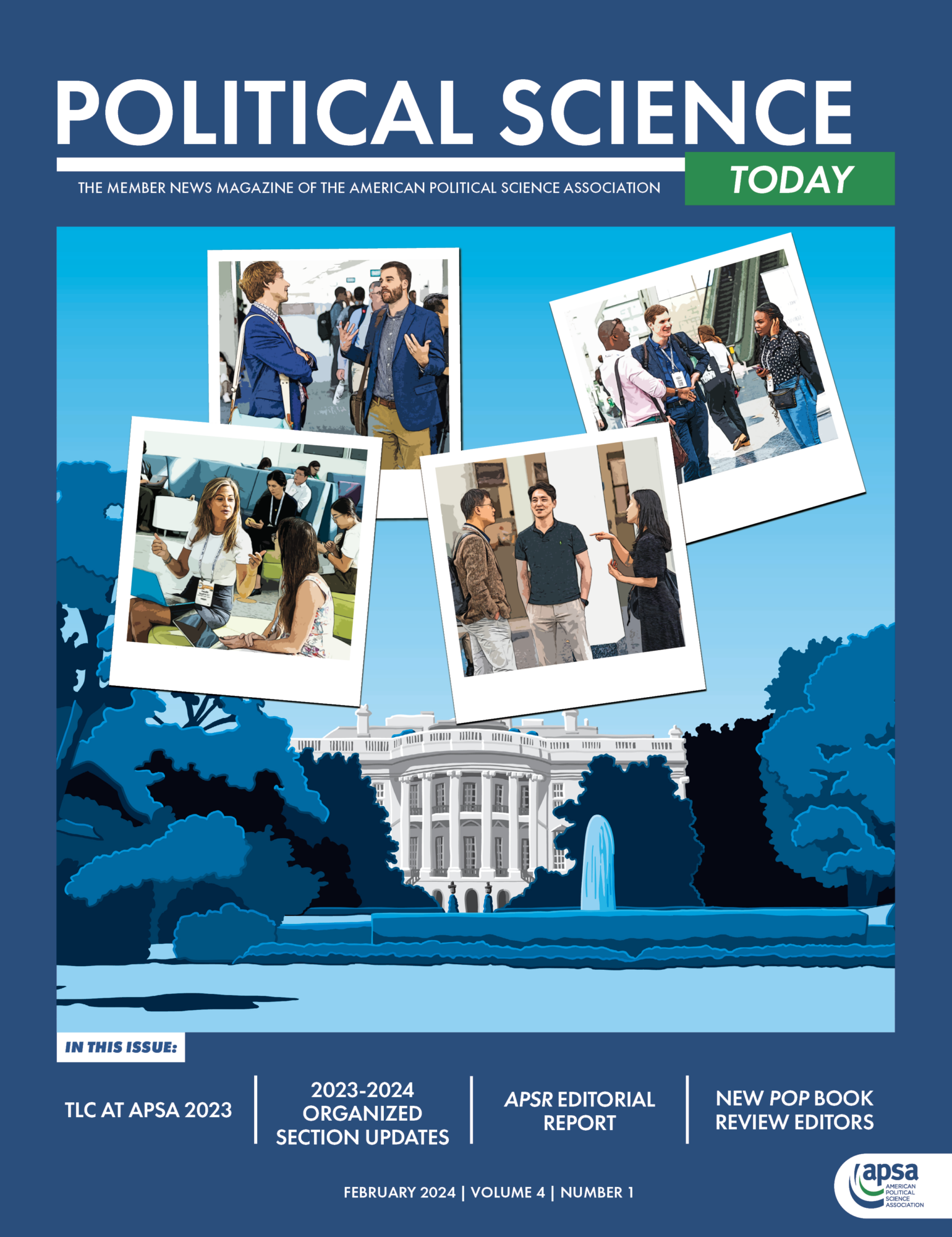Political Science Educator: volume 27, issue 1
Reflections
Adil Yildiz, University of Mississippi
Throughout history, social movements have played an essential role in shaping society and promoting change. From the Women’s Suffrage Movement to the Civil Rights Movement, they have empowered individuals to challenge injustice and advocate for their rights. As a society, we owe a lot to those who have fought tirelessly to create a better world for future generations. The Civil Rights Movement of the 1950s and 1960s was a turning point in American history, as it led to the passage of the Civil Rights Act of 1964 and the Voting Rights Act of 1965. This movement, led by activists such as Martin Luther King Jr., helped to end segregation and ensure equal rights for African Americans (Ralph and Carson 2016, chap. 2). Similarly, the Women’s Suffrage Movement of the late 19th and early 20th centuries was a crucial movement that paved the way for women’s right to vote. Women like Susan B. Anthony and Elizabeth Cady Stanton were instrumental in pushing for women’s suffrage and women’s other rights (June-Friesen 2014).
I have always been fascinated by social movements, particularly their ability to mobilize large groups of people around a common cause. As Michel Foucault (1978, 95-96) remarked, “where there is power, there is resistance” and “where there is resistance, there is power.” Before studying political science, I felt that the power was mostly coming from political elites, then came resistance. I began to desire more participation in the political environment. During my bachelor’s studies, I witnessed the impact of the Gezi Park movement in my community, as people took to the streets to oppose the construction of a shopping mall and to resist an oppressive authoritarian government that stifled alternative lifestyles (Özdemir 2015, 251). I grasped onto social movements like Gezi Park as a means to observe how people have their voice heard against political elites.
When I compare my understanding then to now, I realize that living through a social movement has had a meaningful impact on my perceptions of political science. For example, I have recently read Robert Putnam’s (1995, 67) “Bowling Alone: America’s Declining Social Capital”, where he argues that political participation promote “generalized reciprocity” and “social trust”. I related his arguments to my experience as a participant in a movement, where I realized I gained a direct understanding of these concepts, which I believe my firsthand experience helped my comprehension. This is to say that by participating in a movement, students can gain direct experience of the political process and develop a better understanding of the theories and concepts they study in the classroom. Through their involvement in the movement, students can observe directly how power is exercised and challenged, and they gain a more nuanced understanding of the intricacies involved in the political process.
I believe that the impact of movements on policy outcomes can be highlighted more in standard political science curricula. My experience as a student tells me that while it is clear that movements are successful in raising awareness and mobilizing collectively thanks to the curricula, the extent to which they can affect policy change is often unclear. Political science courses can benefit from including a more nuanced discussion of the relationship between social movements and policy changes. Students might be inspired to become active participants in their own communities through understanding the transformational potential of social movements. They can build a feeling of agency and better understand their own ability to bring about change. Consequently, such motivations would create a more vibrant civic life, contributing to the advancement of society.
In conclusion, participating in a social movement has improved my comprehension of political concepts and theories. Students can gain a better understanding of the aspects of the political process by witnessing how power is exerted and challenged through a movement. Movements have a vital role in collective actions and raising public awareness, yet the degree of their ability to bring change should not be underestimated as it seems to often be in our classrooms. In fact, it is critical to recognize and explain the complex link that exists between movements and policy results. Better incorporating this into political science courses might help students understand deeper how movements drive governmental decisions and subsequently have an impact on people’s lives.
References
Foucault, Michel. 1978. The History of Sexuality, First American edition. In The History of Sexuality, trans. Robert Hurley and Gros Frédéric. New York: Pantheon Books.
June-Friesen, Katy. 2014. “Old Friends Elizabeth Cady Stanton and Susan B. Anthony Made History Together.” Humanities, 35(4). Retrieved June 13, 2023 (https://www.neh.gov/humanities/2014/julyaugust/feature/old-friends- elizabeth-cady-stanton-and-susan-b-anthony-made-histo)
Özdemir, Seçkin Sertdemir. 2015. “The Gezi Park Protests as a Pluralistic ‘Anti- Violent’ Movement.” The Pluralist, 10(3): 247–60.
Putnam, Robert David. 1995. “Bowling Alone: America’s Declining Social Capital.” Journal of Democracy, 6(1): 65–78.
Ralph, James R., and Clayborne Carson. 2016. “Interpreting the Chicago Freedom Movement: The Last Fifty Years.” Chapter two in The Chicago Freedom Movement: Martin Luther King Jr. and Civil Rights Activism in the North, eds. James R. Ralph, Mary Lou Finley, Bernard LaFayette, and Pam Smith. University Press of Kentucky.
Adil Yildiz is a Ph.D. student in political science at the University of Mississippi. Previously, he completed his master’s degree in European and Global Studies at the University of Padova in Italy. In his research, he explores political participation, particularly collective action, social movements, protests, and civil disobedience.
Published since 2005, The Political Science Educator is the newsletter of the Political Science Education Section of the American Political Science Association. All issues of the The Political Science Educator can be viewed on APSA Connects Civic Education page.
Editors: Colin Brown (Northeastern University), Matt Evans (Northwest Arkansas Community College)
Submissions: editor.PSE.newsletter@gmail.com
APSA Educate has republished The Political Science Educator since 2021. Any questions or corrections to how the newsletter appears on Educate should be addressed to educate@apsanet.org
Educate’s Political Science Educator digital collection





